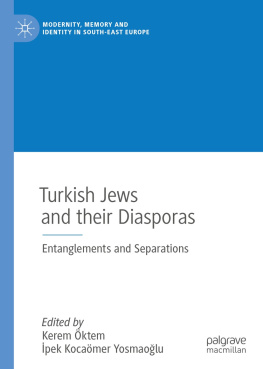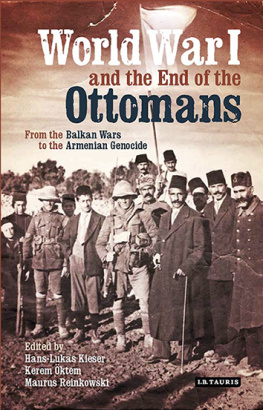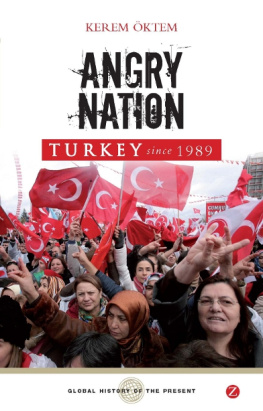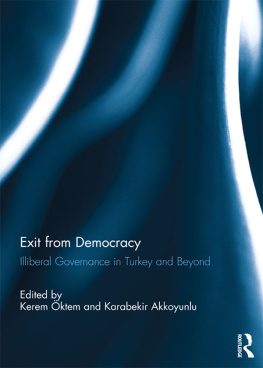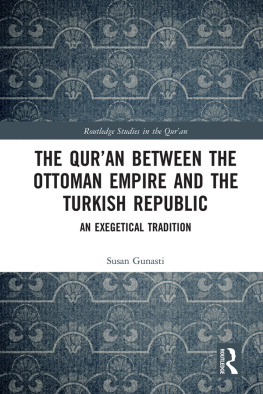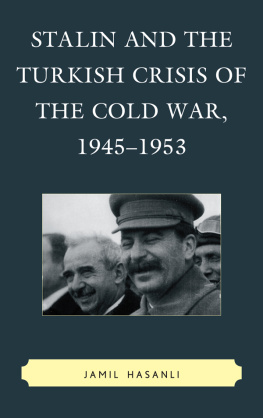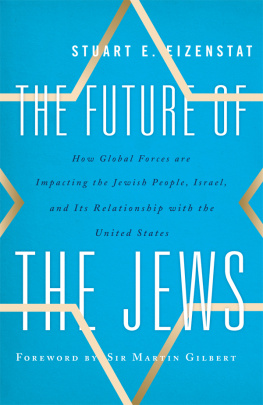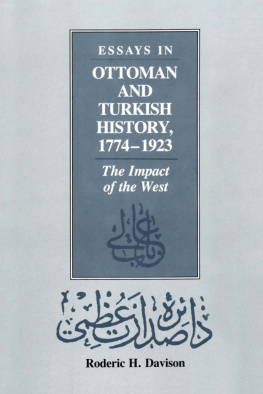Modernity, Memory and Identity in South-East Europe
Series Editor
Catharina Raudvere
Department of Cross-Cultural and Regional Studies, University of Copenhagen, Copenhagen, Denmark
This series explores the relationship between the modern history and present of South-East Europe and the long imperial past of the region. This approach aspires to offer a more nuanced understanding of the concepts of modernity and change in this region, from the nineteenth century to the present day. Titles focus on changes in identity, self-representation and cultural expressions in light of the huge pressures triggered by the interaction between external influences and local and regional practices. The books cover three significant chronological units: the decline of empires and their immediate aftermath, authoritarian governance during the twentieth century, and recent uses of history in changing societies in South-East Europe today.
More information about this series at http://www.palgrave.com/gp/series/15829
Editors
Kerem ktem and pek Kocamer Yosmaolu
Turkish Jews and their Diasporas
Entanglements and Separations

Logo of the publisher
Editors
Kerem ktem
Ca Foscari University of Venice, Venice, Italy
pek Kocamer Yosmaolu
Northwestern University, Evanston, IL, USA
ISSN 2523-7985 e-ISSN 2523-7993
Modernity, Memory and Identity in South-East Europe
ISBN 978-3-030-87797-2 e-ISBN 978-3-030-87798-9
https://doi.org/10.1007/978-3-030-87798-9
The Editor(s) (if applicable) and The Author(s), under exclusive license to Springer Nature Switzerland AG 2022
Baer, Marc David. Sultanic Saviors and Tolerant Turks: Writing Ottoman Jewish History, Denying the Armenian Genocide. pp. 191-211. 2020 [Copyright Holder]. Reprinted with permission of Indiana University Press.
This work is subject to copyright. All rights are solely and exclusively licensed by the Publisher, whether the whole or part of the material is concerned, specifically the rights of translation, reprinting, reuse of illustrations, recitation, broadcasting, reproduction on microfilms or in any other physical way, and transmission or information storage and retrieval, electronic adaptation, computer software, or by similar or dissimilar methodology now known or hereafter developed.
The use of general descriptive names, registered names, trademarks, service marks, etc. in this publication does not imply, even in the absence of a specific statement, that such names are exempt from the relevant protective laws and regulations and therefore free for general use.
The publisher, the authors and the editors are safe to assume that the advice and information in this book are believed to be true and accurate at the date of publication. Neither the publisher nor the authors or the editors give a warranty, expressed or implied, with respect to the material contained herein or for any errors or omissions that may have been made. The publisher remains neutral with regard to jurisdictional claims in published maps and institutional affiliations.
This Palgrave Macmillan imprint is published by the registered company Springer Nature Switzerland AG
The registered company address is: Gewerbestrasse 11, 6330 Cham, Switzerland
Praise for Turkish Jews and their Diasporas
Laying bare the twin myths of Ottoman tolerance and Turkish-Jewish friendship upon which so much of Turkish-Jewish history writing was founded, this volume demonstrates how a dwindling Jewish community and growing antisemitism in Turkey are now unraveling these myths before our very eyes. Full of sobering and incisive reflections on Ottoman and Turkish Jewish lives past and present, this book has much to offer not only to specialists but also to anyone interested in the processes of minoritization, displacement and diaspora in the modern era.
Julia Phillips Cohen, Vanderbilt University, USA
An engaging and erudite exploration of identity politics in the late Ottoman era and modern Turkey. The story of Turkish Jews and their diaspora reflects the twists and turns, paradoxes, entanglements, and struggles shaping the country from the late 19th century till our day. The authors behind this volume have done a tremendous service to all scholars of modern Turkey.
Dimitar Bechev, University of Oxford, UK
Acknowledgements
This collection is the final product of a process of intensive debate and scholarly research that began with the symposium TurkishJewish Entanglements: Resilience, Migration and new Diasporas at the University of Graz in June 2018. Its publication was significantly delayed due to the Covid Pandemic and its adverse impact on the lives and livelihoods of the authors in this volume. The support of many colleagues and friends made it possible nevertheless and we owe thanks to all of them.
We convened the initial symposium thanks to a generous conference grant from the State of Styria, along with contributions from FWF Austrian Research Fund and the Crown Family Center for Jewish and Israel Studies at Northwestern University. Florian Bieber, director of the Centre of Southeast European Studies and Karl Kaser, chair of Southeast European History and Anthropology at the University of Graz supported our venture intellectually and logistically. The symposium served as the meeting place, where the core ideas discussed in this collection were first conceived. Not all participants who contributed to those initial debates are present in this book, but their ideas are. We would like to thank Julia Philips Cohen (Vanderbilt University) and Marcy Brink-Danan (Hebrew University) for their inspiring scholarship, which shaped the larger research agenda of this book. Aylin Kuryel (University of Amsterdam) and her presentation of the dictionary of Jewish experiences in Turkey set the frame for a debate with representatives of Jewish community life in Turkey, including Betsi Penso of the website Avlaremoz and Mois Gabay of the alom Newspaper. Hay Eytan Cohen Yanarocak (Tel Aviv University, Moshe Dayan Center) introduced a geostrategic perspective on Turkish-Jewish relations and Turkish Jewish life in Israel. Their contributions allowed us to extend our sight beyond the confines of academic debate into civil society.
We felt particularly honored to be able to count on the support of Aron Rodrigue, Professor in Jewish Culture and History at Stanford University and Rfat Bali of the Centre Alberto Benveniste, Paris and Libra Books, Istanbul, who framed the debate at the symposium with their scholarly work and do so again in this volume with the preface (Chap. ).
Catharina Raudvere (University of Copenhagen) generously invited us to publish this volume in her book series Modernity, Memory and Identity in South-East Europe, and we are extremely grateful for her encouragement and intellectual inspiration throughout the publication process. Netta Keesom (Northwestern University) was a meticulous and committed copyeditor, on whose services we had the luxury to rely. The departure of our commissioning editor at Palgrave Macmillan, Meagan Simpson, was an unexpected setback for the publication of this book. We are therefore all the more thankful to our friends and colleagues who supported us to see through the final production phase. To all of them and to the contributors of this volume, we owe our gratitude.

